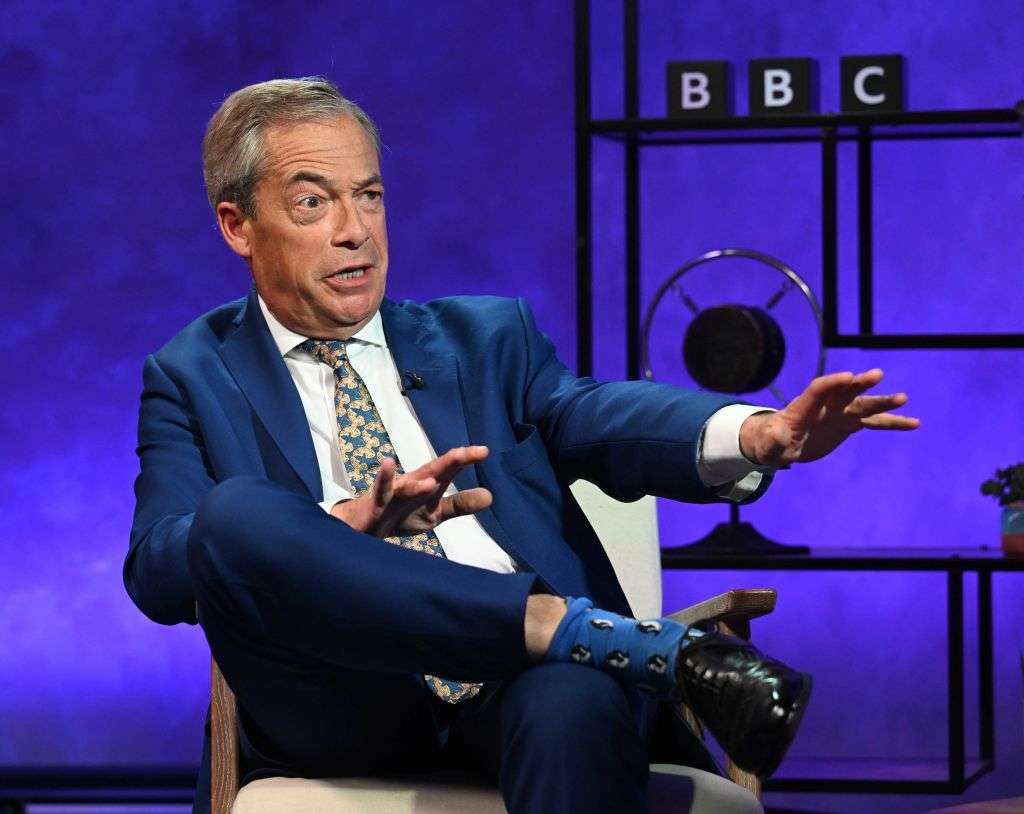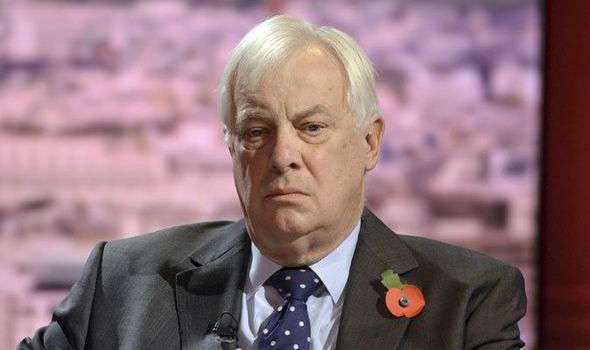In the wake of its most severe electoral defeat, the Conservative Party must steer clear of veering towards the “extreme right” as it attempts to rebuild, a former party chairman has cautioned.
Lord Patten, who oversaw the Tories’ successful 1992 general election campaign only to lose his seat, expressed concerns that the party might mimic Nigel Farage’s approach to regain support.
The esteemed Tory figure, who also served as Britain’s last governor of Hong Kong, characterized potential leadership candidates Priti Patel and Suella Braverman as “extreme right.”
He also likened Farage to “Tommy Robinson in a cravat,” urging the party to take a measured approach to its reformation.
Ms. Braverman recently attracted attention for her criticisms of fellow Tories, accusing them of not being true Conservatives.
Reflecting on the party’s historical struggles, Lord Patten recalled the Conservatives’ collapse after the 1992 election, leading to a significant defeat in 1997 and a 13-year stint out of power.
He attributed the party’s current turmoil to the ongoing civil war over Brexit, remarking that internal conflict is not new for the Conservatives.
He stated that the party has been plagued by fratricidal disputes since the 1990s, particularly over Europe and John Major’s moderate conservatism.
“The malevolent infighting began back in the 1990s, centering on Europe and John Major’s moderate stance. Each conflict has been more acrimonious than the last, and today’s disputes are driven not only by rival ambitions, such as those of extreme right-wingers like Suella Braverman and Priti Patel but also by futile efforts to gloss over the disastrous premiership of Liz Truss and the years of dishonesty and incompetence during Boris Johnson’s tenure in Downing Street.”
Lord Patten
Conservatives’ Problems Beyond Reform UK
Lord Patten cautioned against the belief that regaining lost ground is merely about reclaiming votes from Farage’s Reform UK, which secured five seats and 15 percent of the vote in the recent election.

He emphasized that Tory votes from 2019 also shifted to Labour and the Lib Dems. He also expressed concerns about the party’s increasingly right-wing membership.
“The Conservative Party membership, which has significantly declined over the past few years – it is now about one-eighth the size of the RSPB – must be clearly informed that the path forward does not involve aligning with Nigel Farage’s populist Reform Party, let alone merging with it.
“Farage, who spearheaded the campaign to leave the European Union at a tremendous and harmful cost, offers nothing for a prosperous Conservative future. His barroom rhetoric, if enacted as policy, would result in Liz Truss’s economic strategies, Jeremy Corbyn’s foreign policy (much to Putin’s delight), and a national identity approach reminiscent of Tommy Robinson’s, albeit with a cravat.”
Lord Patten
Lord Patten also warned that attacks on “one-nation Conservatives” threaten to consign the party to “the political cemetery.”
He highlighted that these one-nation conservatives, often under attack, include many who have successfully led the party over the past century.
They are patriots and internationalists who believe in the central importance of properly regulated market forces, which can generate resources for generous social and welfare provision.
In his six-point plan, Lord Patten recommends that the party “needs to avoid rushing into anything except trying to pull itself together and learn how to function as a cohesive team.”
He suggested that it would be best if Sunak remained as the leader for a short while, or stepped aside for an interim leader capable of garnering support across the party.
As the Conservative Party stands at a crossroads, Lord Patten’s insights offer a sobering reminder of the need for unity and moderation in the face of political upheaval and ideological divides.
READ ALSO: Media Engagement by Political Leaders Inspire Issues-Based Politics






















